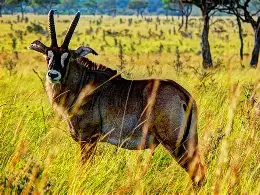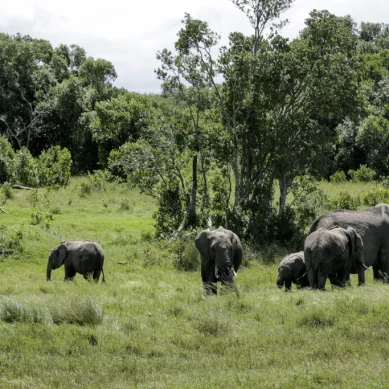Hotel Expo Kenya, Africa Food Show 2025 launch with clarion calls for regional branding
Echoing this vision, Country Director of Global Exhibitions, a subsidiary of MI Groups and the organiser of the two events, Edwin Masivo, called for synergy between the food and hospitality sectors and termed the co-location of the exhibitions not just a logistical move but a purposeful integration of two interdependent industries.
Scramble for natural resources go a notch higher as state transfers world-famous Amboseli National Park to Kajiado County
Speaking at a press conference, Kajiado Governor Joseph Ole Lenku expressed gratitude to President William Ruto and his cabinet for giving the mandate to his administration to handle and manage the resources in Amboseli National Park.
Kenya Wildlife Service reviews park entry fees upwards to fund strategic plan execution
The strategic plan focuses on enhancing wildlife populations, restoring degraded ecosystems, enriching visitor experiences, strengthening community engagement and benefit-sharing in conservation.
Homa Bay County in Lake Victoria Basin launches half marathon to promote Ruma National Park tourism, protect rare antelope
The Kenya Wildlife Service (KWS)’s official Kennedy Ochieng said the event will enhance conservation of the roan antelope. He said the roan antelopes sometimes suffer environmental challenges that are being addressed.
Imminent crude oil production by Uganda forebodes misery for the poor as Kampala follows path taken by Nigeria
The EACOP starts in Kabaale, Hoima District and traverses 296 kilometres in Uganda through 10 districts: Kikuube, Hoima, Kakumiro, Kyankwazi, Mubende, Gomba, Sembabule, Lwengo, Rakai and Kyotera) affecting 25 sub-counties and 171 villages.by the East African Crude Oil Pipeline (EACOP) – a 1,443 kilometres pipeline to the port of Tanga in Tanzania to be processed and sold to the world markets.
Why militarised approach to Cameroon’s wildlife conservation fuels local resentment
The mixed patrols take place both inside the national parks and the surrounding Zones d’Intérêt Cynégétique (ZICs). In the former, the patrols are organised and paid for by Cameroon’s government-run conservation agency, MINFOF, and its international conservation partners – World Conservation Society (WCS) for Benoué and Bouba Ndjida, and the African Wildlife Foundation (AWF), in Faro.
Insurgency, ravages of climate change pose biggest threats to wildlife in northern Cameroon
Cameroon’s Far North has long been on the frontline of climate change. The region has suffered recurrent droughts, most notably during the 1970s and 1980s. This has led to successive waves of southerly migration to more fertile regions. Perhaps the most striking symbol of the changing climate is the shrinking of Lake Chad, a large part of which overlaps with northern Cameroon.
Elephant kills two female tourists from UK, New Zealand in Zambian national park
Female elephants are very protective of their calves and can respond aggressively to what they perceive as threats.
Fire experts in Kenya told wildfires are not necessarily bad if indigenous knowledge is fused in their management
Chege observed that fire, from an ecological and social perspective, holds significant benefits right from controlling pests and improving soil quality to regenerating fresh vegetation for grazing. However, he lamented that Kenya’s current fire management approach remains largely reactive, with most responses coming after wildfires have already caused damage.















